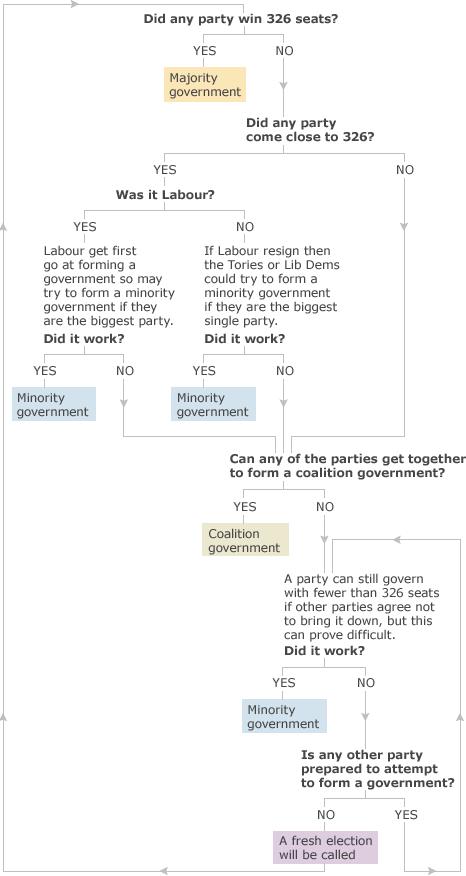Newsbeat guide to... a hung parliament
- Published
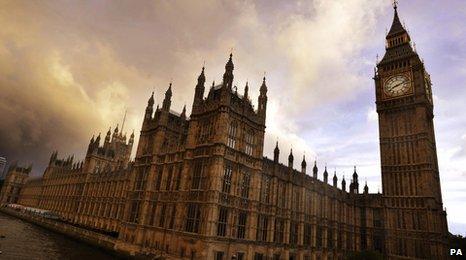
It's unclear who will form the UK's next government after the general election produced a hung parliament.
The Conservatives are the largest party. However, they have failed to reach the 326 seat threshold that would hand them power automatically.
That magic number represents half of the 650 MPs at Westminster.
What is a hung parliament?
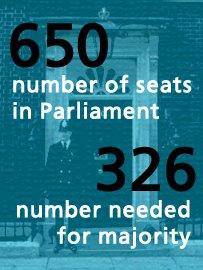
There are 650 seats in Parliament up for grabs at this election - one for each MP.
To automatically become the government, one party needs to win more than half of those: 326.
This is known as an overall majority.
Having a strong majority makes it easier for the government to win votes and pass laws in the House of Commons.
If no single party reaches the magic 326 number, then it becomes a hung parliament.
Option one: Coalition government
Rival parties work together to run the country.
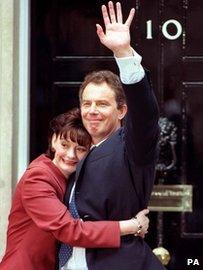
Labour is said to have discussed a coalition with the Lib Dems ahead of the 1997 election
The party that was in charge last (Labour in this case) gets first crack at forming a new government.
They approach other smaller parties looking to pick-up enough MPs to reach a parliamentary majority.
In return they promise to support some of their new partner's election pledges.
Usually there is a formal 'coalition agreement', signed by both sides.
If the outgoing government can't form a coalition another party (usually the one that has done best in the election) gets to try.
The Welsh Assembly Government is made up of a coalition between Labour and Plaid Cymru.
Option two: Minority government
The party with most seats can chose to govern on its own in a minority.
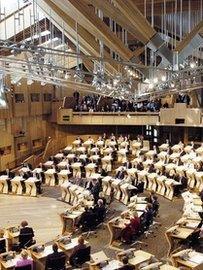
Power in the Scottish Parliament is held by an SNP minority government
Unlike a coalition there is no guarantee that it will get enough support to win parliamentary votes.
Some people believe minority government is good for democracy because it forces the ruling party to argue the case for everything it does.
Others say it prevents governments from taking radical action because they have to compromise too much.
There is always the danger that opposition parties will gang up against a minority government and force it to collapse.
Forcing out a minority government is a risky tactic. It means a fresh election that could turn their minority into a majority.
Option three: Start over again
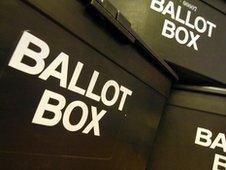
It could be straight back to the ballots if no-one forms a government
If the outgoing government can't strike a deal to continue in power the PM will normally resign and give one of the other parties a chance.
However he could call for another general election.
To do that he would have to ask the Queen to dissolve parliament.
If she agrees voters would head back to the polls once again.
Case study: The 1974 hung parliament
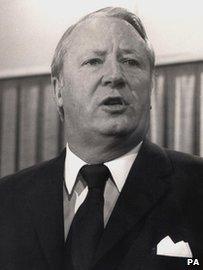
Tory Prime Minister Ted Heath tried to cling onto power despite losing the February 1974 election
The most recent example of a hung parliament after a general election was in February 1974.
Labour beat the Conservatives by four seats.
Because no one had an overall majority Conservative Prime Minister Ted Heath tried to hold onto power.
He held talks with several Northern Ireland MPs about forming a coalition but couldn't reach a deal.
Eventually Ted Heath had to resign and let the Labour leader Harold Wilson takeover as Prime Minister.
Harold Wilson called another election in October 1974 and won a three-seat majority.
Or, if you prefer a flow chart...
